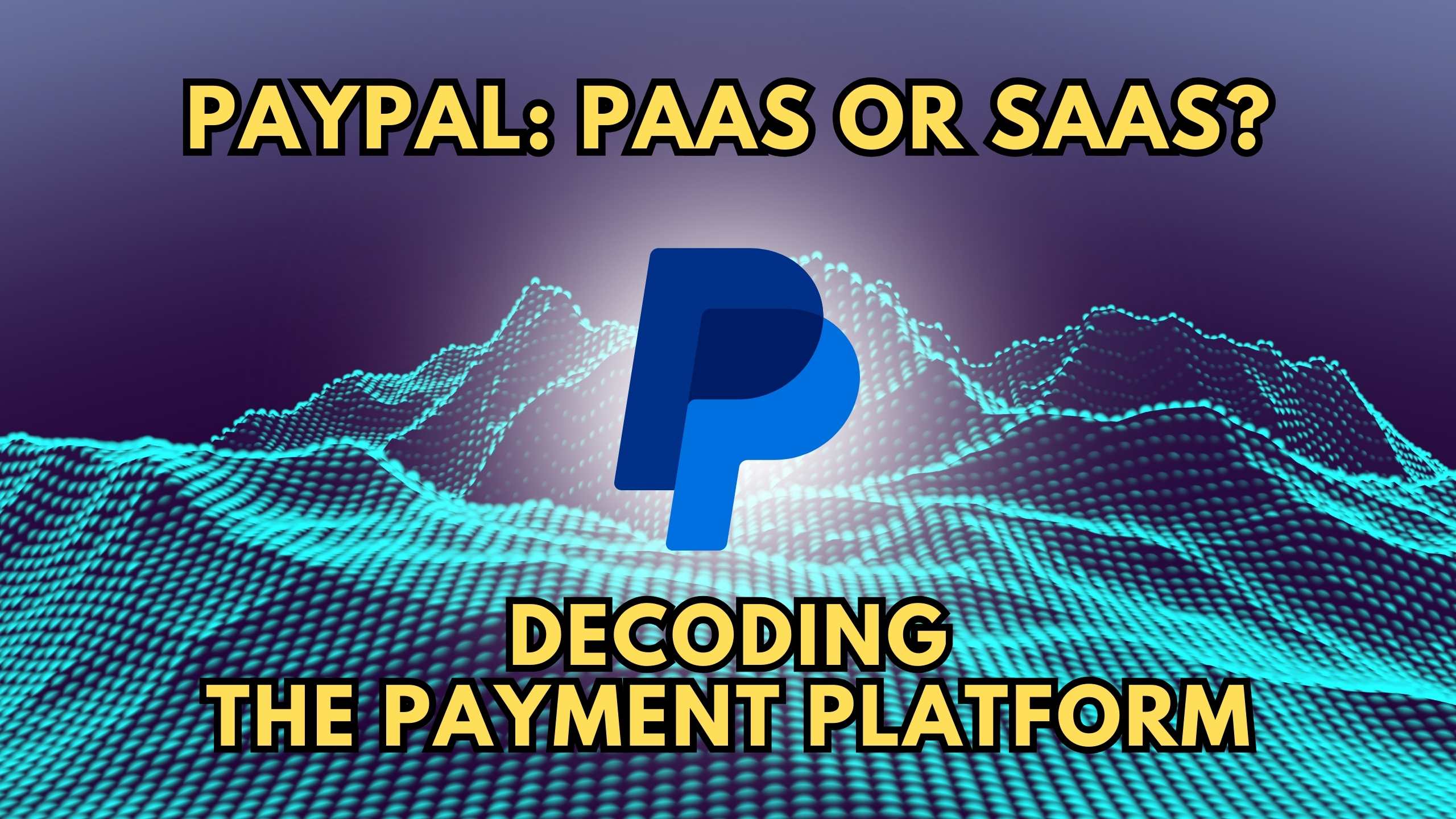PayPal: PaaS or SaaS? Decoding the Payment Platform


PayPal: PaaS or SaaS? Decoding the Payment Platform
In the realm of digital transactions, PayPal stands as a giant, but how should we categorize it – is it a Platform as a Service (PaaS) or Software as a Service (SaaS)? Let’s delve into the intricacies of PayPal’s functionalities to decipher its nature in the broader context of the subscription stack.
PayPal’s Service-Oriented Foundation
PayPal predominantly aligns with the characteristics of a SaaS model. As a payment platform, it delivers a service rather than providing a platform for building applications. Businesses and individuals leverage PayPal to facilitate online transactions, manage invoices, and receive payments seamlessly. Its user-friendly interface and ready-to-use functionalities make it more akin to a SaaS solution, streamlining financial operations without requiring users to manage underlying infrastructure.
The Transactional Landscape
When dissecting PayPal’s role in the transactional landscape, its primary function is providing a service – processing payments securely and efficiently. Unlike PaaS, which typically offers a platform for developers to build and deploy applications, PayPal’s focus is on delivering a ready-made solution for handling financial transactions. Its intuitive dashboard, payment processing capabilities, and ease of integration position it as a SaaS tool tailored to meet the specific needs of online commerce.
Integrations and Customization
While PayPal offers some level of customization and integrations through APIs, it doesn’t align entirely with the flexibility and extensibility characteristic of PaaS. SaaS solutions, including PayPal, are designed to be user-friendly and readily adaptable without extensive coding or development efforts. This simplicity in integration further emphasizes its SaaS nature, catering to a broad user base seeking a straightforward yet powerful financial tool.
Relevance of SaaS Products
In considering SaaS products relevant to the payment and financial management space, here are five noteworthy options:
- Stripe: Renowned for its robust payment processing and subscription billing capabilities, Stripe simplifies online transactions for businesses of all sizes.
- Square: Tailored for small businesses, Square offers an integrated platform for payments, invoicing, and point-of-sale services.
- FreshBooks: Positioned as cloud accounting software, FreshBooks streamlines invoicing, expense tracking, and financial reporting for freelancers and small businesses.
- QuickBooks Online: A widely-used accounting software, QuickBooks Online provides comprehensive financial management solutions, including invoicing and expense tracking.
- Braintree: Owned by PayPal, Braintree specializes in scalable and secure payment processing, making it a versatile choice for businesses seeking flexible payment solutions.
Conclusion
In conclusion, PayPal leans more towards being a SaaS solution due to its service-oriented approach, streamlined transactional functionalities, and user-friendly design. Understanding its nature is crucial for businesses aiming to optimize their financial operations and choose the right tools for their payment processing needs.
Optimize Your Financial Operations with Subscribed.fyi!
Ready to streamline your financial tools and discover exclusive deals? Subscribed.fyi is your go-to platform for managing your SaaS stack. Sign up for free and unlock secret deals on essential financial management tools. Take control of your expenses and elevate your financial operations with Subscribed.fyi!
Relevant Links:








